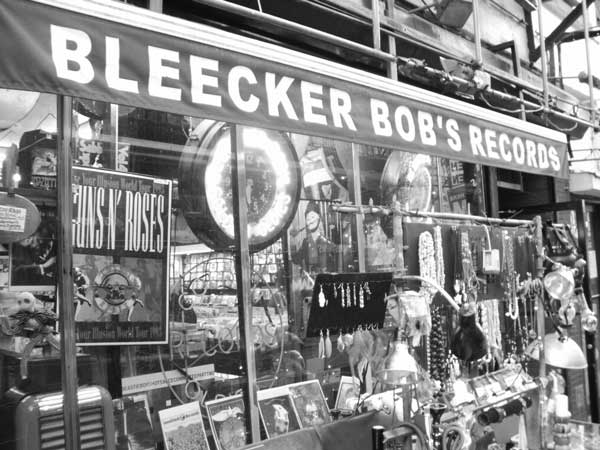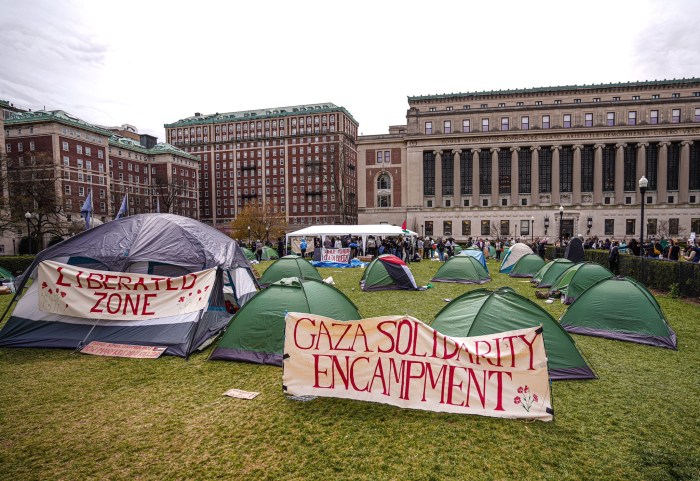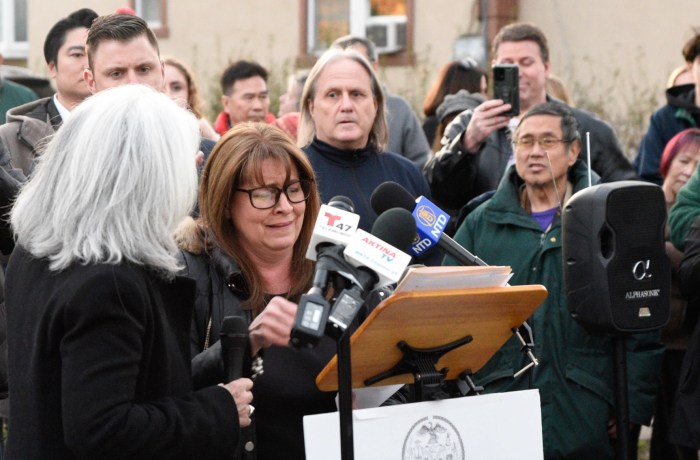 [/media-credit]
[/media-credit]
“Rent is just so much that we can’t stay in business,” said T.J. Foley, an employee for more than 10 years at Bleecker Bob’s, at 118 W. Third St. “We’re looking for a proper space that we could actually move into that’s more reasonable for us,” Foley said.
According to staffers, the landlord is asking for $10,000 a month in rent — an amount that can no longer be afforded — and in coming years, even that amount was expected to increase by an additional $1,400.
The rare-record shop — a Greenwich Village fixture since 1967 — has therefore been forced to look at spaces in the East Village ranging between 650 and 800 square feet with hopes of sharing the space with a smaller business that would help contribute to the rent.
Over the years, Bob’s has practiced space-sharing with a tattoo parlor and, for a time, a comic book store. But ultimately, these too fell prey to a lack of finances.
The record store reportedly must vacate its space by the end of April. A claim last week by The New York Times that the location would be rented to a Starbucks proved to be incorrect.
However, Foley said, there’s no way anything but a “corporate” tenant could afford the space now.
He described the vinyl and CD business as “really slow” in recent years, something he attributed directly to the Internet and the widespread availability of music downloads.
“It’s just knocked us all off,” he said. “We still have a few customers that are regulars for vinyl, but it’s pretty hard to survive in this business.”
Recent years have seen the shuttering of far-larger music retailers like Tower on E. Fourth St., Sam Goody on Sixth Ave. and the Virgin Megastore at Union Square.
The hole-in-the-wall rock shop, with its walls decorated with aged and peeling posters, photographs and rare LP’s, even has a few vintage T-Shirts hanging from a ceiling lit by fluorescent lights.
Foley described Bleecker Bob’s clientele as “die-hard people that want analog music.” Most people that shop at the store soon become regulars, because they can actually view the product and listen to it before buying it, said Foley, noting, “That’s something they can’t do online.”
Come the summer months and Bob’s gets collectors from places across the globe, like Germany and Japan.
“A while back we even had a Russian guy coming in once a year for jazz records,” Foley said. “He would spend a lot, depending on what we had in stock, of course.”
A big spender will fork out hundreds of dollars at a time, according to the employee.
Joshua Gabriel, 36, has been coming to Bleecker Bob’s since 1994. He even worked at the store in the summer of 2004. When asked what the music shop offered that can’t be found anywhere else, Gabriel noted that Bob’s has a lot of esoteric releases on vinyl from the ’60s, ’70s, ’80s and ’90s — particularly obscure ’70s and ’80s New Wave.
“I just keep coming back, because I keep finding things I can’t anywhere else,” Gabriel said.
What will be missed as much as the collectibles is the shop’s laid-back conversational atmosphere, one rarely met with in today’s fast-paced world. Gabriel cited his interaction over the years with the knowledgeable Bob’s employees with an air of nostalgia.
“It’s a shame, because Bob put in so much effort and care,” he said. “I will definitely have fond memories and my collection is a testament to that.”
On a cold, late winter’s afternoon, Remy Bess, 34, could be found scouring the aisles at Bleecker Bob’s, a handful of CD’s in hand.
“I still like coming to a record store to find things,” she said. “You can find things much easier than online by just looking in person.” She’s been a Bob’s customer for roughly 10 years now.
“I like that they hand-pick things and sometimes leave little suggestions and recommendations,” she said. “They have an abundantly unusual collection of rare music.”
Topping the day’s shopping list for Bess was some world music and a little electronic.
Regarding Bob’s closing, Bess said, “I’m very bummed out. I’m definitely sad about this. These places can’t be replaced.”
Originally opened on Bleecker St. by Bob Plotnik in the heyday of the hippie movement, the community fixture changed locations a few times over the years, eventually settling at its current W. Third St. locale in the early ’80s.
It has also seen its share of rock royalty over the years, including Led Zeppelin’s Jimmy Paige and David Bowie, who was a personal friend of Bob’s. According to Foley, Bob even funded the money for Billy Idol’s first record.
As with everything nowadays, it all comes down to the money. And one has to ask what the cultural cost of losing such small businesses will be in the long run.
“There will always be a market for vinyl,” Foley said. “It’s just that you have to price it fairly and reasonably, and you can’t do that if all your overheads don’t let you exist.”

















